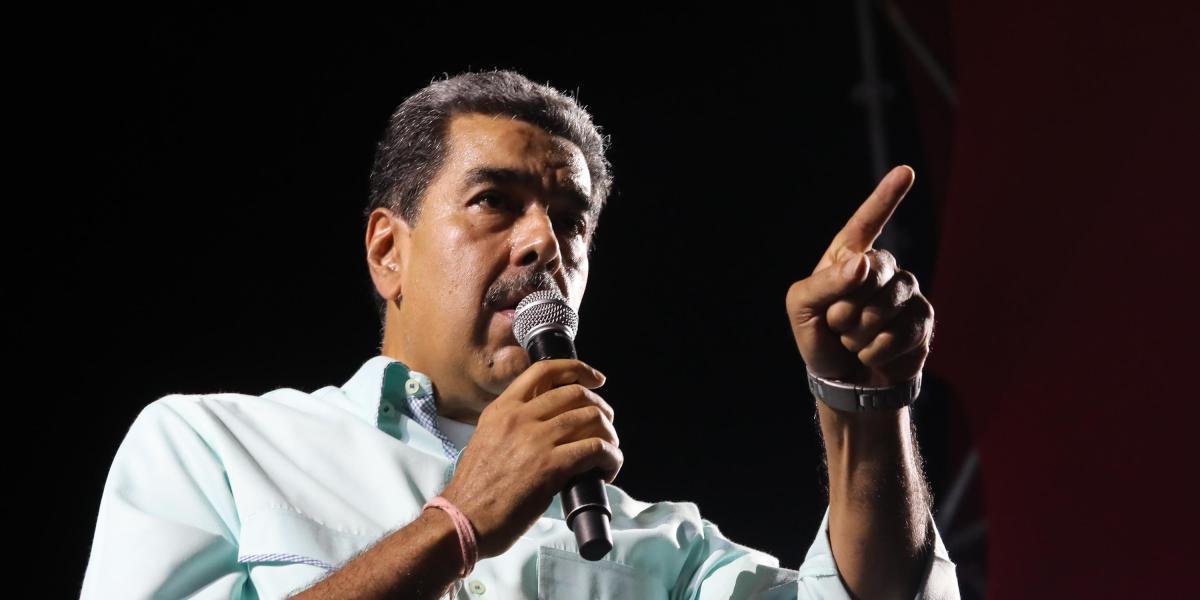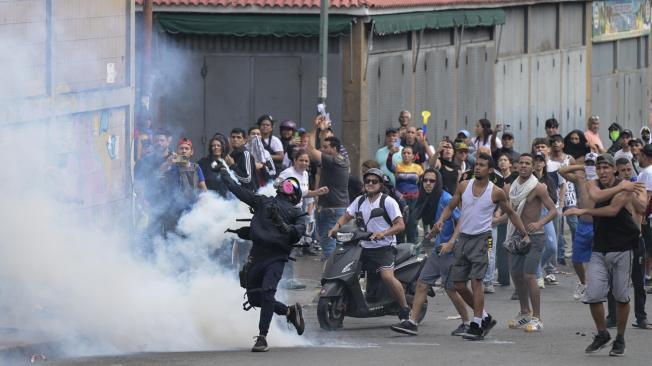The two key organizations for repression in Venezuela that change command by order of Nicolás Maduro, what is behind it?

Everything seems to indicate that Nicolás Maduro is clinging to his military leadership, which demonstrates “absolute loyalty” to the Venezuelan president.
That is why the Venezuelan president’s decision to make some changes and ratifications in the military leadership caused interest.especially because these movements occurred a day after opposition leader María Corina Machado called on the military.
“You know well that the first obedience of a soldier’s life is to respect popular sovereignty, and you know the truth of what happened on July 28, because you were there and saw a united, peaceful and hopeful people in the streets” Machado said in the message.
In that sense, Maduro’s response does not seem coincidental.
The general in chief Vladimir Padrino López was ratified as Minister of Defensea position he has held for 10 years even though it has already expired and he should be in retirement. In addition, Padrino is one of the soldiers sanctioned by the United States, the measure has weighed on him since 2018, “for his loyalty to Maduro.”
On the other hand, Domingo Antonio Hernández Lárez also remains in the Strategic Operational Command of the Armed Forces (Ceofanb).
The so-called “torture centers” that change leadership
The changes occurred in two key organizations for repression in Venezuela and which are indicated in United Nations reports as torture centers. These are the Bolivarian Intelligence Service (Sebin) and the Military Counterintelligence Directorate (Dgcim).

Vladimir Padrino López, Minister of Defense of Nicolás Maduro. Photo: Federico Parra / AFP
Gustavo González López was in Sebin, sanctioned since 2015. That organization is said to be controlled by Diosdado Cabello. Now Major General Alexis Rodríguez Cabello, also an ally of Cabello, will be in charge. The Sebin controls the prisons of El Helicoide and the one known as La Tumba.
Iván Hernández Dala will no longer be in the Dgcim. He is replaced by Major General Javier Marcano Tábata, a less radical man.
Major General Elio Ramón Estrada Paredes was ratified as commander of the Bolivarian National Guard and it is said that his ratification is due to the role the component played in containing the post-election protests.
Major General Johan Alexander Hernández Lárez was appointed to head the army, forming a closed dome around Maduro, along with his brother in the Ceofanb and Padrino López at the head.

Protests in Catia against the result of the presidential election. Photo:AFP
lhe simultaneous changes of the highest authority of the army command, the Sebin and the Dgcim are considered striking and not at all “routine.” Likewise, it is strange that they occur after Machado’s message.
«Military citizen, Venezuela needs you, be the protagonist of the history that the new republic is creating, do not endorse a regime that is on its way out, listen to your conscience (…). The change has already started and is unstoppable,” said Machado.
In the audio, the anti-Chavista leader stated that the head of state “is already past” and that there have been “more than 25 years of revolutionary promises that never came true,” after which today income “has fallen to an unsustainable minimum.” ».
UN Mission accuses Nicolás Maduro’s government of crimes against humanity in the 2024 elections
The UN Independent International Mission for Venezuela affirmed this Tuesday that it sees reasonable grounds to believe that the government of Nicolás Maduro committed “crimes against humanity” before, during and after the presidential elections of July 28, marked by the persecution of opponents and the repression of protests after the elections.
In a 158-page report covering the period from September 1, 2023 to August 31, 2024, the mission accuses security forces and pro-government armed civilian groups of murders, forced disappearances, acts of torture and sexual and gender.

Riot police use tear gas against protesters during a protest in the Catia neighborhood, Caracas. Photo:AFP
The security forces were “massively involved” in human rights violations such as arbitrary arrests, excessive use of force to repress protests, or cruel and degrading treatment, the document indicates, pointing to the civil intelligence services (Sebin) as responsible. and military (Dgcim), as well as the Bolivarian National Guard and the National Police.
Independent journalism needs the support of its readers to continue and ensure that the uncomfortable news they don’t want you to read remains within your reach. Today, with your support, we will continue working hard for censorship-free journalism!
